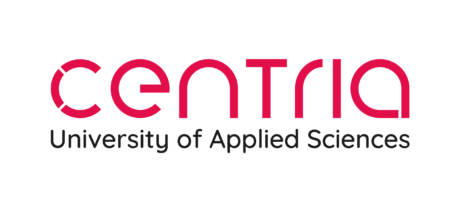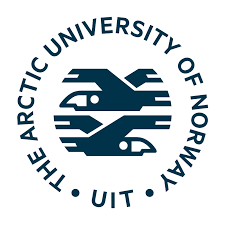Increasing SMEs' innovation capacity and use of advanced technologies in their operations through encouraging entrepreneurial processes, learning practices, and methods for advanced technologies.
![]()



The project objective is to progress the innovation capacities and the uptake of advanced technologies among the target groups. Inspiration to new services will be provided by demonstrating practical use cases. The activities aim to promote entrepreneurial approaches, learning in practice and to spur reflections on innovative processes and methods based on the use of advanced technologies. The project proposal will thereby contribute to the Interreg Aurora programme priority area 1.1. by connecting technology development (UAV and UGV) and service development, and addressing specific problems related to accessibility and low carbon transport technologies. Further, since this project proposal cross-fertilize expertise in UAV/UGV technologies, weather-related applications in intelligent traffic, design and innovation processes and methods it contributes to the programme objective to drive sustainable growth and enable green and digital transition.
SUMMATION - Sustainable Autonomous Systems and Solutions
Program: Interreg Aurora
Field of Action: Competitiveness of SMEs
Partners: Ilmatieteen laitos (FMI), UiT The Arctic University of Norway, Centria-ammattikorkeakoulu Oy, Luleå tekniska universitet (LTU)
Project period: 01.01.2023 - 31.12.2025
Budget: 1 154 721 €
UiT project manager: Raymond Kristiansen
UiT affilliation:
Department of electrical engineering
Electromechanical systems research group

The subarctic climate in the program region is characterized by cold winters, but also warm summers. From a central European perspective of four seasons, the winters are described as long, and summers short. However, when living in the area we experience eight different seasons, a categorization originating from the Sami tradition. This adds spring-winter, spring-summer, autumn-summer, autumn-winter, in between spring, summer, autumn and winter. This better describes how the climate and nature in the region gradually change over a year. Thus, providing unique opportunities, but also specific challenges. The main industries that are reliant on climate and nature are, of course, reindeer herding and tourism and hospitality. In particular, the reindeer husbandry is seeking approaches to better align tradition and growth to cope with the changes in climate. The tourism and hospitality industry is seeking more sustainable approaches for product and service development. Also, actors responsible for infrastructure like roads and railroads experience a challenge during wintertime (ice and snow), springtime (flooding, pot holes), summer (slippery asphalt due to rain) and autumn (cold nights ice forming, wet slippery leaves). Further, municipalities struggle to provide attractive milieus for their citizens to live in, for example supporting outdoor leisure time activities during all seasons. In this context, smart technologies, such as UAV technology (Unmanned Aerial Vehicle) and UGV technology (Unmanned Ground Vehicle, can support sustainable inspections, delivery and search/rescue services, and other technologies such as 3D scanning can support interactive maps. As initialized in the previous AA3D project (ended June 2022), drone technology can support experiences of hiking and be used for gathering reindeers instead of using, e.g., ATV (All Terrain Vehicle) that causes damages to the sensitive ground.
The target group are businesses and organizations in tourism and hospitality, reindeer herding (Sami villages and SMEs), public sector (actors in railroad and road, municipalities), and SME businesses related to the subarctic climate (winter vehicle testing sites, and IT companies). The need within tourism is related to sustainable growth, for example to find new attractive services that add experiences beyond the current ones. This is based on the identified change in visitors travel habits, partly due to the pandemic, partly due to new online services. As for reindeer herding their need is to preserve the tradition and culture, but also to ensure progress for future generations, for example to reduce the resources needed to monitor the herd in vast areas, and innovative ways to, make sure that the animals are ok and if not, to search for sick or dead animals.
The public sector group includes actors responsible for infrastructure, municipalities, as well as local business organizations and sport associations. The latter will specifically include organizers of events and competitions, as an example Schaatsen Grand Prix and Sea Ice Marathon in Luleå. Their needs are related to, for example ensuring safe and attractive outdoor activities in ski slopes, on natural ice tracks, but also traffic and avalanche monitoring.
Applying UAV or UGV solutions with Internet of Things (IoT), 3D scanning, radar, RFID, or similar smart technologies is the common denominator for the project, along with processes and methods to internalize innovative service design and development into the organizations. The target groups will be involved in the applied case studies, thereby investigations of challenges, ideas, solutions and requirements on approaches will simultaneously be discussed with the representatives. Follow up studies will be done to assess lessons learned particularly in relation to innovations and the usage of new technologies within businesses.


Interreg Aurora
Interreg Aurora is programme in the European Interreg community for cross-border cooperation 2021-2027. The programme offers great opportunities and enables new and exciting cross-border cooperation in the northernmost part of Europe and Sápmi. The project is also co-funded by Troms og Finnmark fylkeskommune.
External project website
[Loading...]